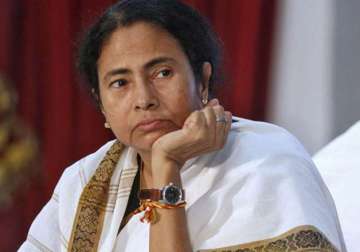New Delhi: Mamata Banerjee led Trinamool Congress has decided to extend its support to government's Goods and Services Tax Constitution Amendment Bill that is to be tabled in parliament today.
Finance Minister Arun Jaitley is likely to move the GST Bill in the Lok Sabha for discussion and passage.
TMC MP Derek O'Brien said outside parliament, “TMC has commitment in it's manifesto to introduce GST, so we have been in talks with Govt, we want to support Govt.”
He added that the party has a few minor issues with the bill but supports it in principle.
Four hours have been allotted for discussion on The Constitution (One Hundred and Twenty-Second Amendment) Bill, 2014 but it is likely to be put to vote on April 27.
Being a Constitution amendment, it will have to be passed with a 2/3 majority in both Houses of Parliament and hence BJP and other parties are planning to issue whips to its members to be present when the bill is put to vote.
Once passed by Parliament it will have to be passed by at least half the number of states.
Government is confident of getting the requisite numbers in Parliament as several deliberations with other political parties and finance ministers of states have already taken place on the GST Bill.
Though some states have raised the issue of compensation, the Modi government is making an allout effort to get GST in place and implement it from April 1, 2016.
The Constitution will have to be amended to give concurrent taxing powers to the Centre and the states to make laws for levying goods and services tax on every transaction of supply of goods or services or both.
GST is expected to add 1-2% to the GDP by creating a national market for goods and removing distortions caused by multiple indirect taxes levied by the Centre, states and local bodies.
(With agency inputs)
